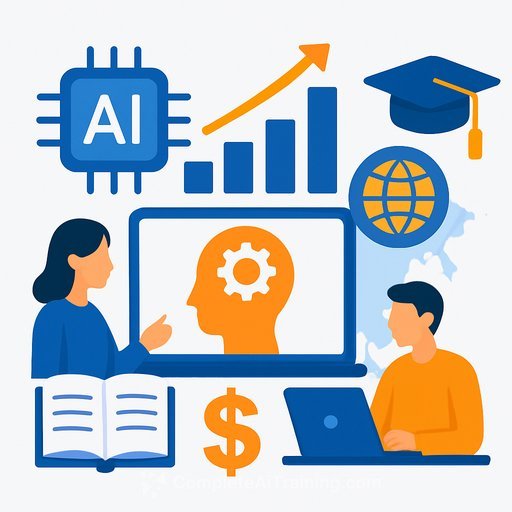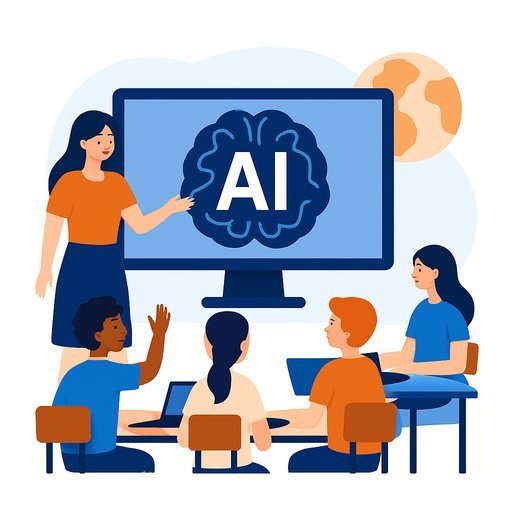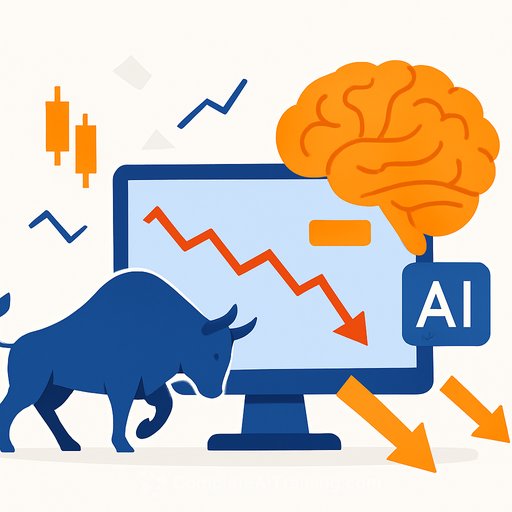AI and Your Bank Account
There’s an app for nearly everything today. But how much should you rely on technology to make smart financial decisions?
Atif Ikram, a clinical professor of finance, highlights that AI-powered financial tools are changing how people manage money. He teaches FIN 123: Money Matters and stresses that personal finance education is more crucial than ever.
"Young people used to rely on simple budgeting apps or spreadsheets," Ikram explains. "Now, many interact with AI like ChatGPT as if it’s a financial advisor, asking questions about expenses, credit cards, taxes, or insurance."
With National Financial Awareness Day on Aug. 14, Ikram shares insights on how AI is reshaping money management and what to watch for when using AI in your financial planning.
How AI Has Changed Financial Management for Young People
AI has made financial planning more accessible. Many AI-driven apps now offer personalized advice and engage users in new ways. For example:
- Cleo provides financial tips through an interactive interface.
- Arta Finance uses Gen Z slang to make advice relatable.
- Acorns automates savings and investment management using AI algorithms.
- Robo-advisors like Betterment and Wealthfront offer not just portfolio management but also financial coaching.
The barriers to sound financial decisions have lowered significantly, changing how a generation approaches money.
Risks to Consider When Using AI in Financial Planning
Despite the benefits, AI tools have risks. One major issue is AI "hallucination"—the generation of incorrect or outdated information. Ikram notes students sometimes receive poor tax advice or make bad investment choices by trusting AI blindly.
Overreliance on AI can hinder financial literacy. If users skip learning the basics, they can't properly judge AI’s recommendations. This can lead to poor decisions masked as informed ones.
Data privacy is another concern. Sharing sensitive info like bank statements or social security numbers with AI platforms exposes users to potential breaches. Unlike regulated financial institutions, AI tools often lack strong privacy safeguards.
Finally, AI systems aren’t fiduciaries. Unlike human advisors legally committed to clients’ best interests, AI advice may unintentionally favor platform providers. Ikram advises using AI as a research and education aid—not the sole source for major financial decisions.
The Future of Financial Education Alongside AI
Some assume AI will make financial education obsolete, much like calculators supposedly ended the need to memorize multiplication tables. Ikram disagrees.
He argues that AI actually raises the bar for essential skills. Users must learn how to craft precise prompts, critically assess AI outputs, and understand AI’s limitations. Without this foundation, AI tools cannot be used effectively.
AI’s ability to personalize learning is promising. It can adapt explanations, provide real-time feedback on simulations, and offer culturally relevant examples. This means educators will need to focus more on critical thinking, ethics, and judgment—areas AI cannot replace.
Financial education will evolve to include AI literacy, teaching students how to evaluate and apply AI-generated advice responsibly.
Promising and Concerning AI Trends in Personal Finance
The most encouraging trend is AI’s democratization of financial planning. Sophisticated advice and tools, once available mostly to the wealthy, are now open to a broader audience.
While AI can make mistakes, so can human advisors. As accuracy improves and privacy safeguards strengthen, more people will benefit from AI-powered financial tools.
Ikram is especially optimistic about AI’s potential to address financial behavior and psychology. AI can factor in cultural backgrounds and personal values, helping correct biases and deliver customized plans.
Future AI tools may recognize spending triggers, identify optimal saving moments, and provide real-time behavioral coaching to improve money management.
For those interested in building AI skills related to finance and other fields, exploring specialized courses can be valuable. Resources like Complete AI Training’s latest AI courses offer focused learning paths for leveraging AI tools effectively.
Your membership also unlocks:














